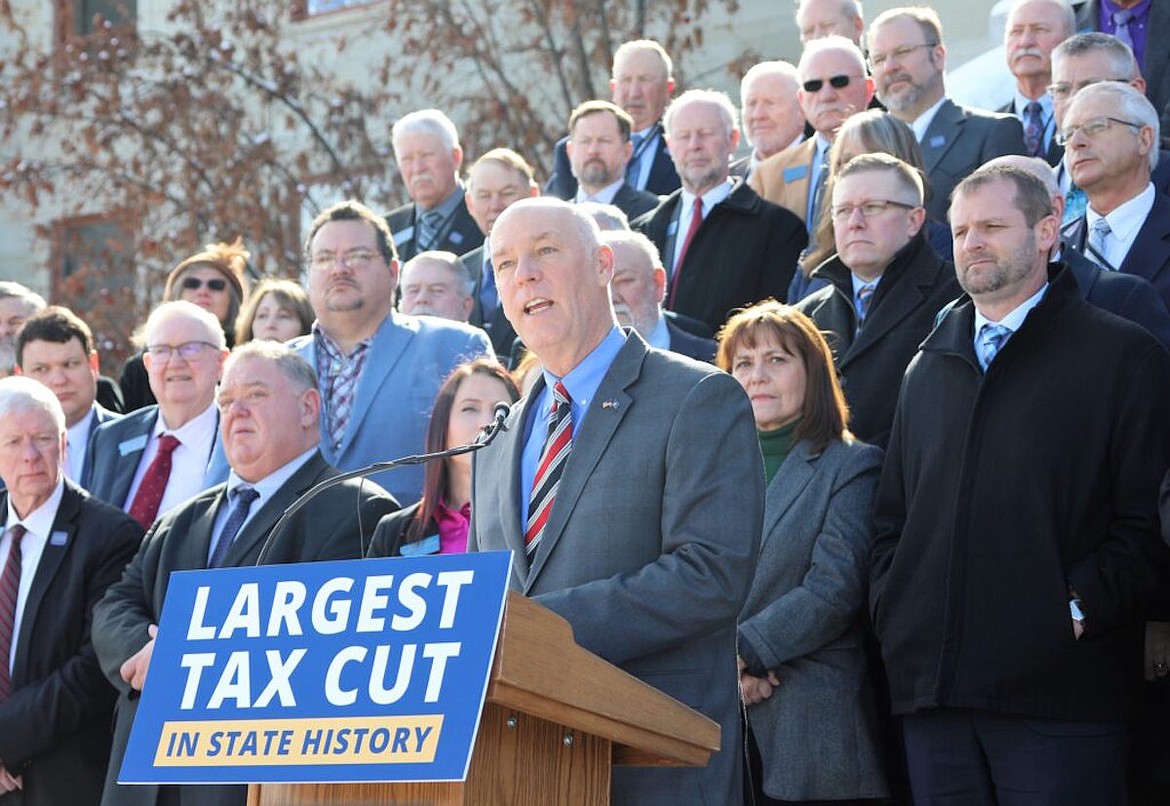Governor cites ‘historic’ tax relief, Dems say only for the wealthy
Gov. Greg Gianforte touted historic tax relief on the steps of the Montana capitol on Monday as he signed into law six tax slashing bills into law – and one that changes corporate income taxes....
Become a Subscriber!
You have read all of your free articles this month. Select a plan below to start your subscription today.
Already a subscriber? Login



